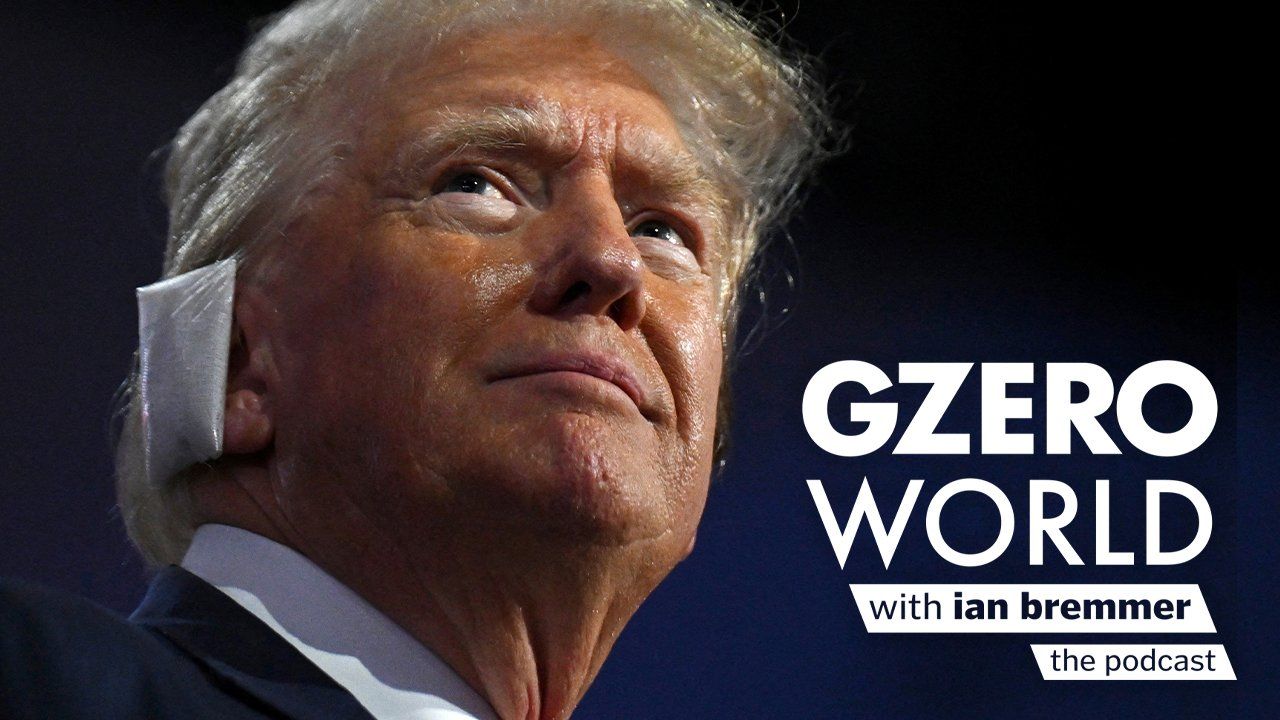GZERO World with Ian Bremmer Podcast
July 20, 2024
Listen: We're watching history happen in real-time. Never before was that fact more apparent than this week, when former President Trump narrowly survived an assassination attempt, picked his VP candidate, presided over a united GOP at the Republican Convention, and all while a Democratic Party in disarray continued to clamor for Biden to step aside.
It's amazing that the afterthought for the week is whether the sitting President will remain on the ticket for an election just months away. But that's where we are.
In the latest episode of the GZERO World Podcast, Ian Bremmer reflects on this pivotal week in US politics and welcomes back media journalist and former CNN show host Brian Stelter on the show alongside Vanderbilt political historian Nicole Hemmer. “We're living in a period of escalating political violence and social and political instability,” Hemmer tells Bremmer. “That was true in the late 1960s and early 1970s, and I think that it's true today."
In a wide-ranging conversation that touches on all the major news of the week, Hemmer and Stelter dig into the political divisions that led to this moment of horrific political violence. “The real divides are not between Democrats and Republicans, although those are real” Stelter adds. “But the biggest divide that we're seeing is between extremists and those who are moderates, the great silent majority."
Both guests also comment on the media's role in this fraught environment, with Hemmer critiquing prediction-focused coverage and Stelter advocating for better representation of casual news consumers and politically fatigued voters. The three also discuss the likelihood of Biden stepping down, an eventuality that Stelter argues is inevitable. “It is clear the Democratic Party elites are not with Biden. And I don't see that tide turning. I don't see how it changes.”
From Your Site Articles
- The US is the world's most dysfunctional major democracy ›
- Is American democracy in danger? ›
- Ian Bremmer: American democracy at risk thanks to conspiracy theories ›
- Al Gore's take on American democracy, climate action, and "artificial insanity" ›
- What Donald Trump's second term will mean for the US economy - GZERO Media ›
- How Trump 2.0 could reshape US foreign policy, with the New York Times' David Sanger - GZERO Media ›
More For You
Michael Froman explains how the world is adjusting to Trump’s more transactional and unilateral approach to global power.
Most Popular
- YouTube
At the 2026 Munich Security Conference, NATO Parliamentary Secretary General Benedetta Berti explains why hybrid threats, from undersea cable sabotage to disinformation, energy coercion, and cyberattacks, are no longer isolated incidents but a defining feature of today’s security environment.
- YouTube
In this Quick Take from Munich, Ian Bremmer examines the state of the transatlantic alliance as the 62nd Munich Security Conference concludes.
- YouTube
At the 2026 Munich Security Conference, Brad Smith announces the launch of the Trusted Tech Alliance, a coalition of global technology leaders, including Microsoft, committing to secure cross-border tech flows, ethical governance, and stronger data protections.
© 2025 GZERO Media. All Rights Reserved | A Eurasia Group media company.
